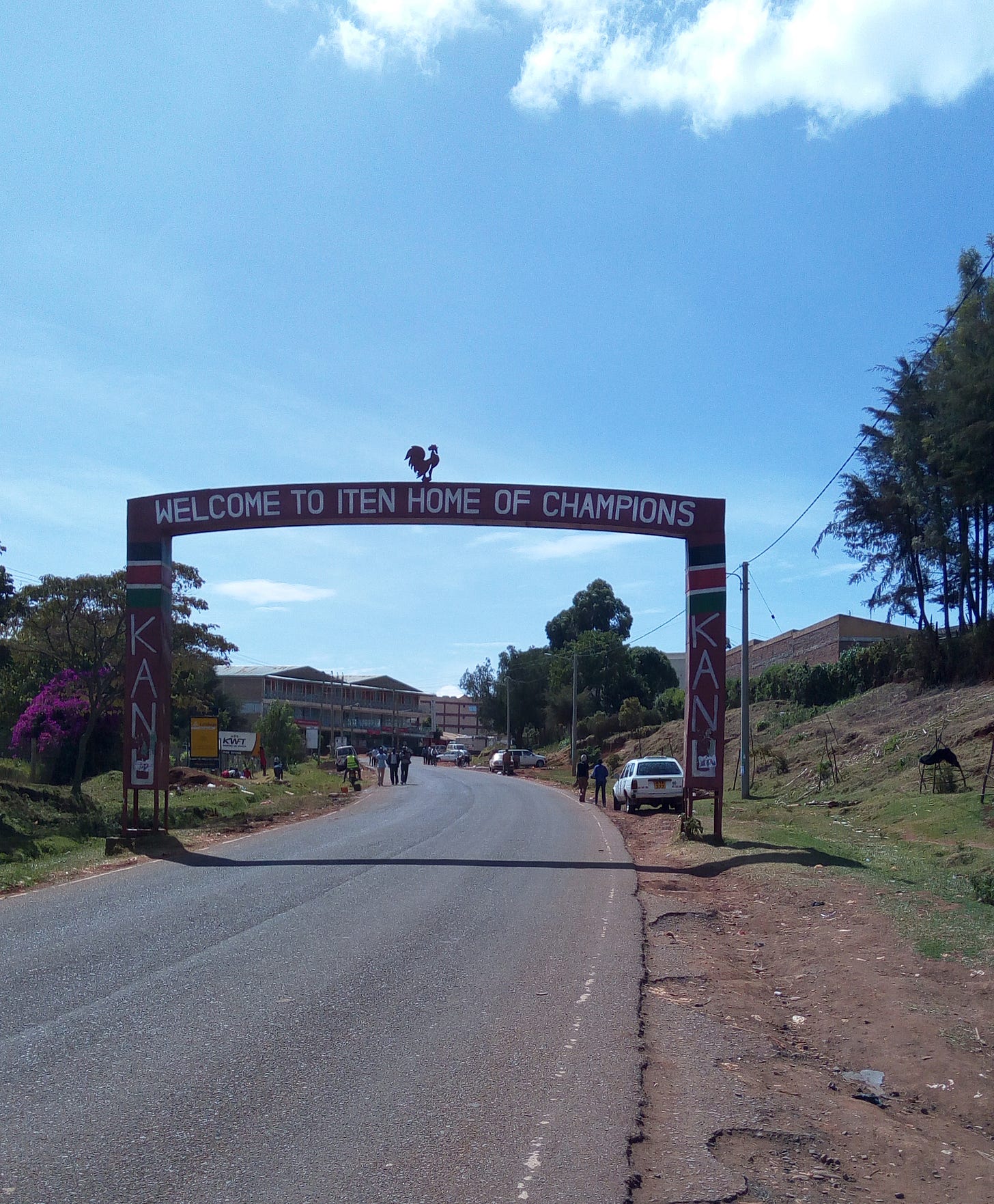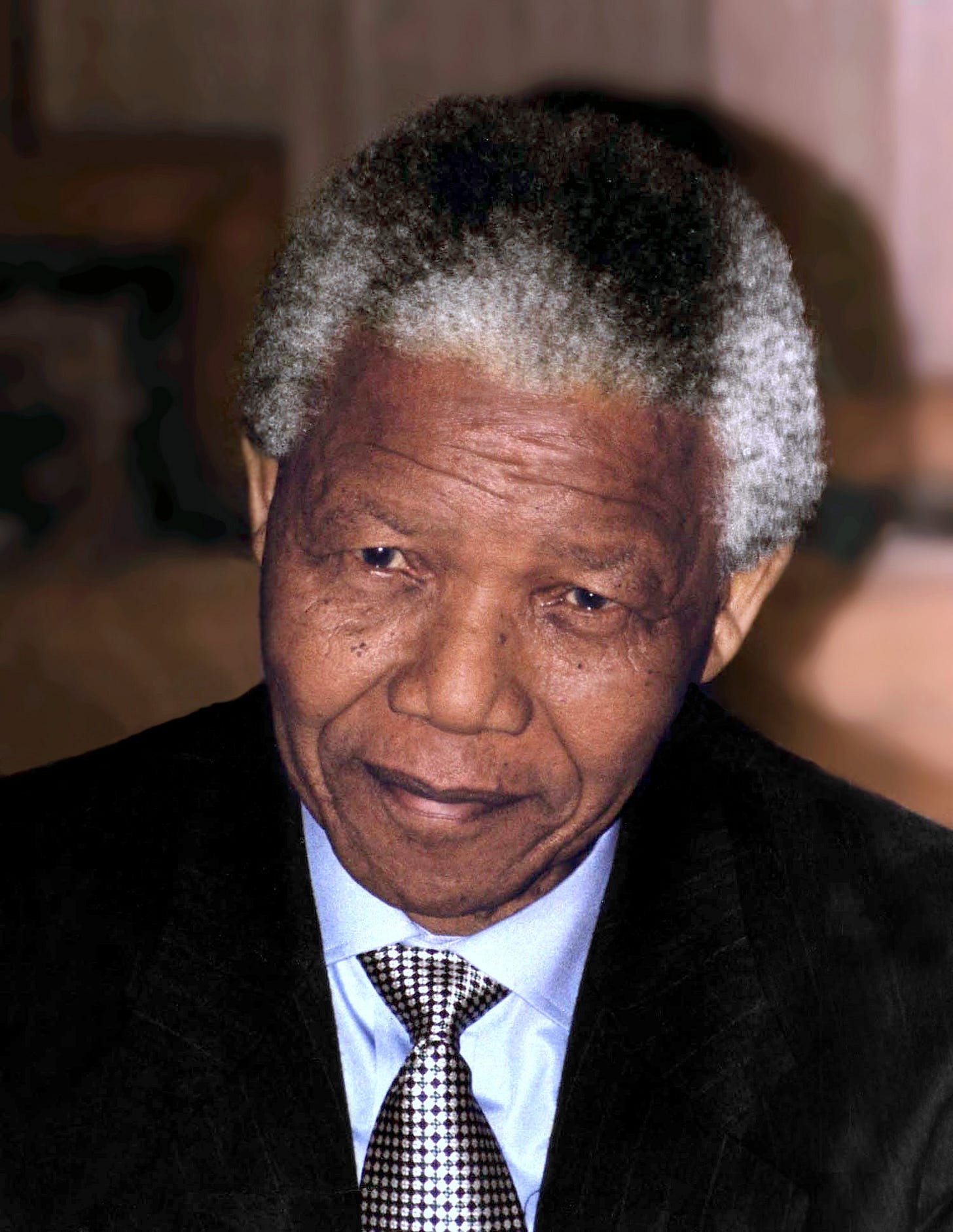🔅 Eritrea Saw the Future of Foreign Aid—and Booted It Out
And The Region Attracting Joggers from All Over the World

Good morning from… Can you guess where in Africa this is? (Answer at the bottom!)
Eritrea Saw the Future of Foreign Aid—and Booted It Out
If you’re looking for African countries not worried by the impending “aid apocalypse,” take a look at Eritrea. Back in 2005, this tiny, authoritarian nation booted out USAID and told other western donors, “Don’t let the door hit you on the way out.” And while most Africans still rely on foreign aid for everything from HIV prevention to building roads, Eritrea’s off in its own corner, forging a path that’s as unconventional as it is defiant.
For decades, Africa has leaned heavily on Western development assistance—money that’s now drying up thanks to COVID, the war in Ukraine, and (brace yourself) Donald Trump’s radical slash-and-burn approach to the USAID budget. Yet Eritrea was decades ahead of the rest, when President Isaias Afewerki decided that reliance on foreign donors “stifles local initiative.” He basically said, “If no one’s giving us what we need, we’ll struggle and do it ourselves.”
Spoiler: Eritrea’s not exactly a model democracy. It’s perpetually on war footing, and Afewerki’s not known for his love of free speech. But ironically, it’s still performing about as well on key social indicators as some of its more aid-dependent neighbors. Life expectancy there, for instance, matches that of Rwanda—despite Kigali raking in more than a billion dollars in yearly donor cash.
For many African countries, the abrupt freeze in U.S. aid is already biting. From HIV programs in Kenya to humanitarian efforts in DR Congo and Sudan, thousands of staff have been laid off, and desperate patients face uncertain futures. Some leaders say they’ve had to cut back on “non-essential” projects to keep vital healthcare afloat. But after years of external shocks—from falling commodity prices to a slowdown in Chinese investments—many states are tapped out.
Meanwhile, in Eritrea…
All this chaos hasn’t touched it. The country famously got zero U.S. aid last year. Granted, freedom and democracy are in short supply there, but it’s spent decades “doing it alone,” so a massive retreat of Western donors is a complete non-issue. For everyone else, the question is whether they can adapt as quickly…
Iten: The Region Attracting Joggers from All Over the World
At sunrise, the dusty roads of Iten, Kenya, begin throbbing with packs of runners pounding the ground in unison. While some are local legends, many are from half a world away. Why flock here? Well, this unassuming little town sits roughly 2,400 meters above sea level (call it the “stairway to running heaven”), and it’s spawned more gold-medalists than most entire countries.
“I wanted to soak in the atmosphere where the best train,” says Ryan Mex of Malta, an athlete-turned-coach who came armed with three of his star pupils. He’s aiming for an edge in upcoming marathons. That’s Iten for you: the world’s default address for anyone dreaming of crossing the finish line first.
It’s population might be the size of a large suburban neighborhood, but it’s also produced unstoppable icons like Kenyan Olympians Eliud Kipchoge and David Rudisha, plus four-time British champion Mo Farah, who trains here like it’s his second home. So, yeah – not exactly your typical scenic dot on the map. Officially recognized as a “World Athletics Heritage Landmark,” Iten proudly calls itself the “Home of Champions.”
Runners pour in from every corner of the globe, and the accommodations have ballooned accordingly. Hotels, lodges, Airbnb-style flats – you name it. April to September is prime time – so if you fancy sharing breakfast with an Olympic hopeful, dear reader, that’s the season to drop by.
Back in the 1970s, Iten was but a scattering of huts and a single school, but the big turning point happened when athletics went pro, and runners realised they could train for a living. Next thing you know, the town is pumping out global track stars like a sneakered assembly line, and the rest is local legend.
Today, it hosts around 500 foreign runners at any time in peak season. You’ve got the hardcore elites, your next-door neighbor’s cousin who’s decided marathons are more fun than an office job, and even charity do-gooders logging miles for a cause.
So if your finishing times are feeling stale and you yearn for a place where daily 10-milers are the local handshake, pack those trainers. Because in Iten – at 8,000 feet above sea level – the air is thin, the roads dusty, and the next champion might just be warming up right beside you.
In Search of “Truth and Reconciliation”: Apartheid’s Victims Sue the ANC for Broken Promises
When Nelson Mandela became president of South Africa in 1994, many across the world cheered a miracle transition – a new democracy skipping the dreaded bloodbath. The centerpiece of that miracle was the Truth and Reconciliation Commission (TRC), which offered amnesty to perpetrators who openly confessed their apartheid-era crimes. Flash forward 31 years, and for families like Lukhanyo Calata’s and Tshidiso Motasi’s, the honeymoon is definitely over. They’re suing the government, accusing it of burying apartheid crimes in a hush-hush “wink-wink” deal.
Calata was just 3 when his father’s charred remains were found in 1985. Motasi was 5 when he spent a night next to the bodies of his murdered parents. The TRC confirmed who pulled the triggers in both cases, but decades later, no prosecutions, according to Bloomberg. Many of the killers have died peacefully, unpunished; others are well into their 70s. It’s a deeply bitter pill for survivors who’d pinned their hopes on the TRC’s quest for accountability.
This disillusionment isn’t just about some ancient vendettas. The plaintiffs’ lawsuit – filed in January – claims that successive ANC governments (Mandela’s party, ironically) sabotaged prosecuting old apartheid crimes, possibly to protect bigwigs with skeletons in their closets.
Yet, all over the globe, South Africa’s TRC is still cited as The Model. War criminals and former dictators always get told: “Why not do what Mandela did?” The reality, these families argue, is far grimmer. The amnesty was supposed to pave the way for real justice for those who never confessed – but after the TRC ended in 1998, further prosecutions mostly never happened. Meanwhile, the notion that powerful people can dodge the law has seeped into daily life, fueling an epidemic of corruption that’s made South Africans furious.
Yes, the TRC gave us stirring images of tearful confessions on live TV. But the lawsuit highlights the fine print: a truth commission only works if the truths are, you know, acted upon. The families of apartheid’s victims say they’ve found only bureaucratic shrugging where they needed real follow-up. The ultimate outcome remains to be seen, but if the case wins, it may force the ANC – and the world – to reckon more honestly with the tagline “never again.”
Food for Thought
“Those who do not forgive cannot expect to be forgiven.”
— Nigeria Proverb
And the Answer is…
The photo is from Paradise Beach, Gambia! You can also send in your own photos, alongside the location, and we’ll do our best to feature them.






Dear Baobab,
in your story on Eritrea and booting out foreign aid, it is not necessary to say that the Prime Minister is averse to free speech or that the country is always on war footing. That is straight out of the western playbook of propaganda against Countries such Eritrea that choose not to do as the West will say like sheep. My country Zimbabwe is always written about in the same vein and I have complained to you about before. Pariah countries for whom every achievement written about has to be tempered with a negative downside. You compare Eritrea to Rwanda in the same story but is Mr. Kagame a champion for free speech in his own country? Is Rwanda not always on war footing given what is going on in the eastern DRC? Why do you not add that to your stories on Rwanda?for